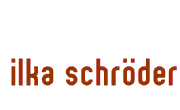
Criminal Complaint Filed Against "Super-Spy" Phone System.
By Steve Gold, Newsbytes.
A Member of the European Parliament (MEP) from Berlin has filed criminal complaints in Germany against the international Echelon computer surveillance network.
Unlike the recently vilified Carnivore Internet monitoring system installed on most US Internet Service Provider (ISP) servers, the Echelon system is shrouded in secrecy. Thought to have been created in the 1940s by the US and UK governments, the system is now known to monitor most voice and data traffic circulating in most West countries. Reports suggests that it can legally do this by side-stepping national anti-surveillance legislation by requiring, for example, the US government's National Security Agency (NSA) to monitor UK comms traffic, and, similarly, using the UK's security agencies to monitor US comms traffic. In her complaint, Ilka Schrvder, a Green Party Member of the European Parliament (MEP) cited "unknown suspects especially from the US and Great Britain, as well as possibly the German Federal Government, for operating and tolerating the Echelon network."
According to German media reports, Schrvder filed the complaints Monday with the German Federal chief public prosecutor, as well as public prosecutors' offices in Berlin and, perhaps significantly, in Traunstein. The Traunstein office covers the Bavarian town of Bad Aibling, where a monitoring station is generally reported as being operated by the NSA. Schrvder, who serves as a substitute member of the European Parliament committee which is investigating Echelon, referred to a report commissioned by the committee, which confirmed that Echelon is monitoring private and business telephone calls, faxes, and e-mail messages in Europe, including in Germany. This is not the first time that Echelon has come into the legal firing Line. Back in February, reports suggested that the French government was considering lawsuits on privacy grounds, alleging that the international Echelon super-spy network monitored French companies, diplomats and ministers.
The Echelon network has been talked about in security circles for several years, but its existence was most recently confirmed in November, 1999, when the BBC reported that an Australian government official had confirmed the network actually existed. At the time, the BBC reported that Bill Blick, Australia's inspector general of intelligence, confirmed that his country's Defence Signals Directorate forms part of the Echelon network. "As you would expect there are a large amount of radio communications floating around in the atmosphere, and agencies such as the DSD collect those communications in the interests of their national security," Blick told the BBC. Asked if information is then passed on to the US or the UK, Blick replied that "in certain circumstances" it was. The BBC report followed hard on the heels of an attempt on Oct. 22, 1999, to swamp the Echelon network with subversive e-mails. In that incident, Internet users from around the world launched an e-mail campaign against the NSA in an attempt to flood the agency's alleged computer surveillance system. Reports of the time suggested that the protesters were upset at NSA's apparent scanning of e-mails in an attempt to identify potential terrorists. In the United States, a recent CBS-TV report on the show "60 Minutes" reported that the system may have been used to spy on the phone conversations of the late Princess Diana, at a time when she was spearheading an effort to ban landmines worldwide.
Echelon's existence has been discussed in security circles for almost a decade, but its existence was only brought to public attention in early 1997 by Covert Action Quarterly (CAQ), a quarterly intelligence newsletter, which revealed details of the global telecommunications surveillance system. According to the newsletter, Echelon is a top secret alliance involving the NSA's telecoms surveillance system and other government networks that allows the bulk of the civilized world's telephone calls to be digitized and analyzed using intelligent text searching technology. CAQ said that Echelon monitors virtually all phone calls in the US and Europe, including the UK, effectively making a mockery of the UK's Interception of Communications Act. The newsletter added that Echelon is used to keyword search e-mail, fax, telex and all types of voice communications, including analog and digital cellular phone calls. "Unlike many of the electronic spy systems developed during the Cold War, Echelon is designed primarily for non-military targets: governments, organizations, businesses, and individuals in virtually every country. It potentially affects every person communicating between (and sometimes within) countries anywhere in the world," the newsletter said.
The newsletter added that the existence of Echelon was inadvertently revealed by the New Zealand government, which joined the Echelon network in the 1960s. The four other main members of Echelon are the US' NSA, the UK's GCHQ, Canada's Communications Security Establishment (CSE) and Australia's Defence Signals Directorate (DSD).
The newsletter said that Echelon started life as a UK-US government co-operative initiative in the Second World War. After the war, the agreement was formalized in 1948, when the UK and the US agreed to tackle intelligence gathering against the USSR. Central to Echelon are the Echelon dictionaries, which are compiled by the five main member's intelligence agencies. Each intelligence agency holds copies of all of the other member's dictionaries, which contain details of keywords that the respective intelligence agency is interested in. Each agency's computer system scans all available telecoms and data traffic in its region. Where another agency's keyword is found in the digital data stream, the relevant text or data is automatically forwarded to the appropriate agency's computer system. This means, the newsletter said, that the originating agency's staff never get to see the relevant data - only the agency with the appropriate keyword receives the transmission. CAQ claims that the relevant agencies' headquarters processing Echelon data surveillance files are located in Washington, Ottawa, Cheltenham, Canberra, and Wellington.
CAQ's Web site is at http://www.worldmedia.com/caq.
top ![]()
ilka.org sicher lesen? dann: https://www.ilka.org
